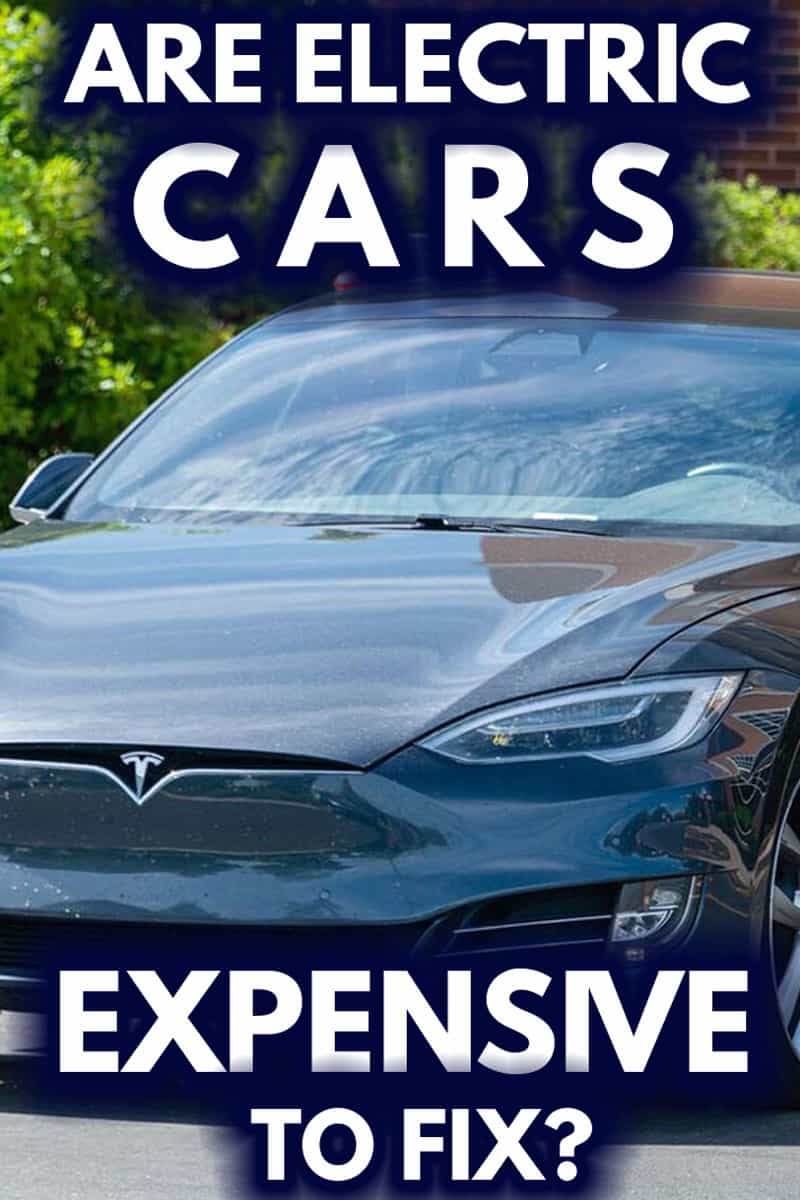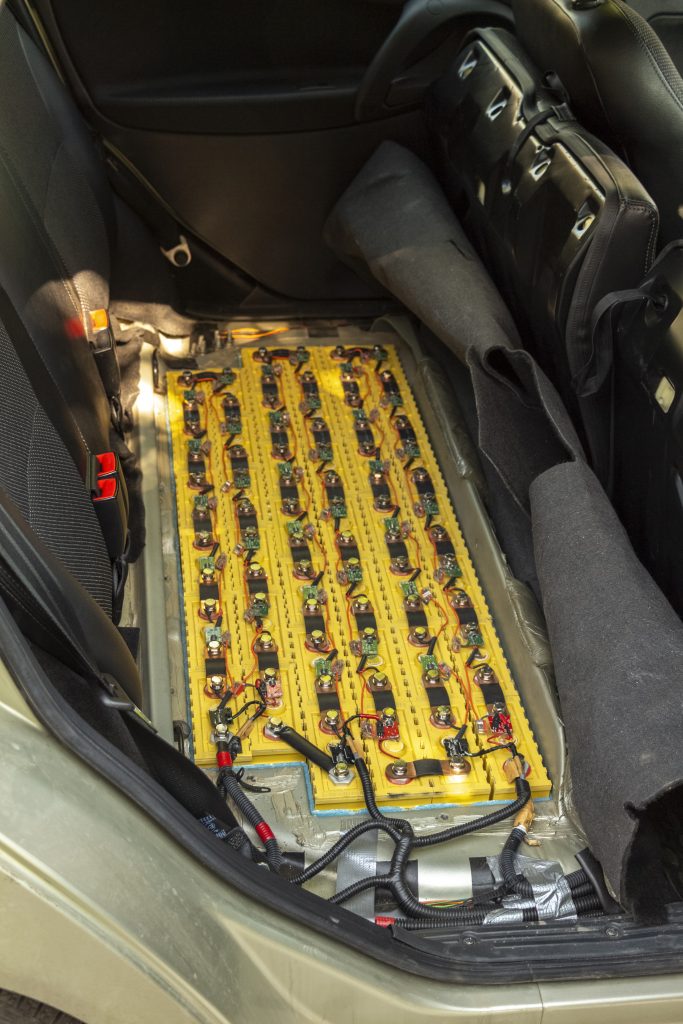 So you've made the jump and switched to an electric vehicle. The gas savings alone are going to make it worth your while. But now you find yourself wondering if the electric car is going to be more expensive to fix then standard vehicles. We have done the research to answer this all-important question.
So you've made the jump and switched to an electric vehicle. The gas savings alone are going to make it worth your while. But now you find yourself wondering if the electric car is going to be more expensive to fix then standard vehicles. We have done the research to answer this all-important question.
Maintaining an electric car should cost about a third of what it usually costs to maintain a gasoline or diesel vehicle. A lot of this has to do with the fact that there isn't oil that needs to be changed, and there are very few moving parts in the motor. You are primarily going to need to worry about windshield wipers tires and the brake pads, and at some point, in time, the battery bank will need to be replaced.
Electric vehicles are more efficient all the way around. They leave much less of a carbon footprint and use absolutely zero fossil fuels. They will, however, still need to be maintained, if you are wondering about the cost of fixing and maintaining an electric vehicle don't worry we did the research and we put it in a tight little article. Read on to find out what we discovered about the cost of maintaining or fixing an electric vehicle.
Common Repairs For Electric Vehicles
Here is the list of the most common procedures that need to be done on an electric vehicle:
- Tire rotation
- Brake fluid service
- Coolant
- Brakes
- Batteries
Tire Rotation
This is the most common maintenance procedure that needs to be done on an electric vehicle. The weight and balance of an electric vehicle or different than that of a contemporary fuel-burning vehicle, so that means that your tires need to be rotated when you need to rotate them. It is recommended that you do this every 30,000 miles so that the tires can wear evenly. Electric vehicles also produce more torque than other vehicles, so that can add to tire wear you may notice that you have to replace your tires more often.
Brake Fluid Service
Although the brake system has been redesigned for electric vehicles to allow for regenerative braking, there is still brake fluid that needs to be changed. Despite their power-generating components, the hardware is always the same and electric vehicles that it is on every other vehicle; there are still rotors and pads that are compressed by a caliper, and all of this is controlled by hydraulic fluid. Not doing so will increase the likelihood of more costly the braking system as well as adding corrosion. This is a natural reaction by the chemicals in the brake fluid when they are exposed to air and contaminants.
Coolant
Electric cars don't have a contemporary engine; however, they do still have a cooling system because the battery is under extreme amounts of heat from all of its generation and output of energy. The coolant used in this process is not the same as any conventional vehicle. Because of their General makeup, the interval between coolant flushes is cooling changes can range anywhere between 50,000 miles and 150,000 miles. This will vary with your model.
Brakes
This section was kept separate from the brake fluid because how often you have to do this is going to rely on several factors. Electric vehicles generate much more torque, so they require a lot more stopping power than standard vehicles. There are also other systems that take the energy from the stopping process to recharge. Showing consideration of this, you may find yourself having to go get more brake jobs done because your brakes may or may not last longer that will depend upon the setting that you have for regeneration and how often and how much force you use to apply the brakes.
Battery Care
This is where the cost can soar. If you are completely charging your car's battery, then you can damage it. If you overcharge your car's battery, you can also inflict damage. When it comes to electric cars, the battery is more or less equivocal to the engine. The correct balance for charging and running can be found in your owner's manual, and you should make sure and read that and understand it completely.
Since there is no combustion engine, there are many fewer parts to repair and replace on an electric vehicle. The motor has approximately half a dozen moving parts as opposed to the thousands in a conventional engine. Aside from breaking and weight, there is very little wear and tear to a vehicle of this nature. So, in the long run, owning an electric car can actually cut down on maintenance costs.
Battery Costs
In the event that your electric vehicle does require new batteries, then things can get a little pricey. While the average standard engine can range anywhere between 500 and $3,500 to replace, an electric car battery can run $7,500. That's just for one if you have a necessity for more than one van; the price is going to go up very quickly. This is arguably the most expensive repair on a fully electric vehicle.
Hybrid Vehicles
Up to now, we've discussed fully electric vehicles, but what about hybrids? With a hybrid vehicle, you get the best of both worlds you get a gasoline engine that can power the battery Bank and a battery bank that can provide energy and be used to power an electric motor when gasoline is not needed. Is it expensive to fix or maintain a hybrid vehicle?
The answer to this question is yes; the cost of maintaining a hybrid vehicle is going to be much larger than a purely electric vehicle. This is because these vehicles have both systems. So it's easy to see how the cost could factor in here.
Gas Engine
While the gasoline engine in most hybrids is arguably smaller than most contemporary vehicles, it's still a gasoline engine and requires the same type of Maintenance and the system to function properly. This means changing the fluids changing the oil, maintaining the spark all of these things that you don't have to worry about with an electric vehicle you do have to worry about with a hybrid vehicle. These engines still require oil changes, spark plugs and all of the other maintenance that you would normally have to perform. They usually don't get as much use so they last a lot longer.
Batteries

As previously mentioned about the gasoline engine hybrid vehicles also have a battery pack like electrical Vehicles do, and they retain the same amount of Maintenance as the others previously article. This means specialized cooling fluid and the expensive repair should the battery Bank fail. Most of these will last for up to 150,000 miles.
As with anything, there's a trade-off a hybrid; it's going to be a moderately priced vehicle possibly a little bit more than your standard vehicle, maybe a little bit less depending upon your brand. However, you get some of the efficiency of an electric vehicle waste V guaranteed safety backup of a gasoline engine should the electrical portion of the vehicle fail.
Show images of hybrid vehicles; they're going to cost more to maintain than your standard gasoline-driven vehicles because of the presence of both systems. The good part about it, though, is they don't have as much maintenance as their predecessors. So while it may hurt the wallet upfront, in the long run, you're going to be saving much much money.
So Why Buy A Hybrid?
Electric vehicles or EVS are extremely efficient as far as energy output in the distance that they can travel. The average range of most of these is a hundred miles per single charge. So this provides some limitations unless you live in an urban setting where there are opportunities to recharge the batteries. That's where the hybrid comes in because sometimes they can be an electric vehicle, and sometimes it can run on a gasoline engine.
The great thing about it is it's not one or the other all the time, so you kind of split the maintenance costs between the two systems. If it is done correctly, you can spread the cost over time to the point where it actually becomes inexpensive to own the vehicle. You also get much more distance per charge and still save a ton of money at the gas station.
Comparatively speaking, it is not expensive to repair or maintain an electric vehicle or a hybrid. A lot of that is going to have to do with how much driving you do, the type of terrain that you drive in the type of weather that you live in and how often you pay attention to the charge levels in the fluid levels in your vehicle.
No matter what style you drive, an electric vehicle is definitely more helpful to the environment. The maintenance costs are relatively low, especially if you compare that to not having to use gasoline or diesel to power the vehicle. In the end, it equates to either be a little less expensive or right on par. It would be really hard to go wrong with purchasing an electric vehicle.
